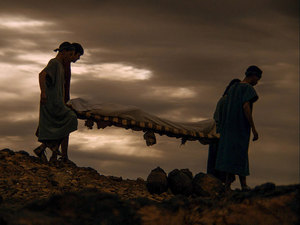A sermon preached on Advent 4 - just as we went into Tier 4.
Chris Gollon: Madonna and child
Although we stand with Mary at the moment of annunciation, perhaps we are in fact already in the midst of birth pangs. Since March, we’ve waited and labouring to keep people safe love hurts.
This woman who’s response we know by heart; whose story is so well known; the figure who has stored the artistic imagination; the one who calls forth devotion.
She stands before us: Mary, mother of our Lord Jesus Christ:
faithful.
trusting.
obedient.
joyful.
humble.
She has become a pattern of grace, endurance and hope.
She is receptive to the outpouring of the Spirit, not just today but until the day of Pentecost.
She waits.
She ponders and praises; she protests and prays.
She is one with us today.
One in a community of love and witness.
Sophie Hacker: from Art of Mary (Southwell Minster)
The one who is the fullness of God was born of her flesh.
She is Theotōkos: God bearer.
In his sonnet series ‘La Corona’ the Anglican priest and poet, John Donne, writes of this intimate mystery of faith and love saying of Mary: thou are now, Thy Maker’s maker, and thy Father’s mother, Thou has light in dark, and shutt’st in little room immensity, cloister’d in thy dear womb.
Her story like ours is a tapestry of joys and sorrows; hopes and fears. We celebrate her character and our lives fill her silences.
She is often presented as a devoted mother; resilient and wondering; tenderly nursing her son. She is both mother of sorrows and queen of heaven.
The story of this particular woman is of cosmic significance. The wonder of pregnancy; eternity caught in a span.
We wait with this woman who waited: nine months before her labour pains.
Susie Hamilton: from Art of Mary (Southwell Minster)
Today we remember the way in which an angel greeted her with blessing and peace and favour.
She was troubled. She asked questions.
The angel spoke words of assurance, promise and power.
She responds: the Lords’ servant, aligning her will with God’s will.
Then there’s a moment of solitude: there is space and stillness; and yet did her heart beat a little faster, her breath a little shallower. Left by an angel; praying her beloved Jospeh would remain at her side.
Elizabeth Catlett: Mother and Child
As we look forward to nativity, the Word of God is birthed in our midst. He will leave the cloister’d womb and gasp for air and cry and reach for Mary’s breast, for Joseph’s hand.
He comes in weakness to a world where the inn has no room.
This Word is speechless now; but will grow up to speak wonders.
Mary bore him, held him, guarded him fiercely. Her arms a crucible of passion and compassion. How many parable did she shape - stories of a woman’s lost coin, a wedding feast and yeast in bread?
Elizabeth Catlett: Madonna
This woman bears this child: holding him out to us.
She presents him as one who disrupts the status quo, who knows our thoughts and fears; who heals and loves.
He is near to us now.
May we bear him in our hearts, thou not present in our churches.
For the one cloister’d in Mary’s womb is the one whose kingdom never fails.
In a moment we’re going to hear a piece by Sufjan Stevens - whose music has a folksy and subversive yet strangely familiar take on Christmas (link at the end).
He sings of longing for blessing; for our hearts to be tuned to grace. Echoing Mary’s song, the Magnificat, he speaks of mercy and praise and unchanging love.
Echoing Mary’s response to God, he sings to God saying: here’s my heart, take it; that we might bear Jesus.
An advert by the Savills estate agent reads:
Homes have been a boardroom and a class room, often at the very same time.
Homes that have been both a place of work and the perfect staycation
Homes that’ve offered a door to shield behind, a room to scream in and a wall to lean on; Homes that have kept us together while we’ve been apart; been workout spaces and worship spaces…
It ends thank you that every home has been more than a home; and as we shield and scream, work and worship, may we remember that this season God chooses to make a home with us; in our hearts.
Christmas isn’t cancelled. It’s lived out more intimately, yes, but still real. May our homes protect us and be a place where God dwells and out of which we can bear Christ’s love to others.
© Julie Gittoes
A stanza from John Donne's "La Corona" read at the end of the sermon.
Annunciation
Salvation to all that will is nigh;
That All, which always is all everywhere,
Which cannot sin, and yet all sins must bear,
Which cannot die, yet cannot choose but die,
Lo! faithful Virgin, yields Himself to lie
In prison, in thy womb; and though He there
Can take no sin, nor thou give, yet He'll wear,
Taken from thence, flesh, which death's force may try.
Ere by the spheres time was created thou
Wast in His mind, who is thy Son, and Brother;
Whom thou conceives, conceived; yea, thou art now
Thy Maker's maker, and thy Father's mother,
Those hast light in dark, and shutt'st in little room
Immensity, cloister'd in thy dear womb.
Sufjan Stevens:









